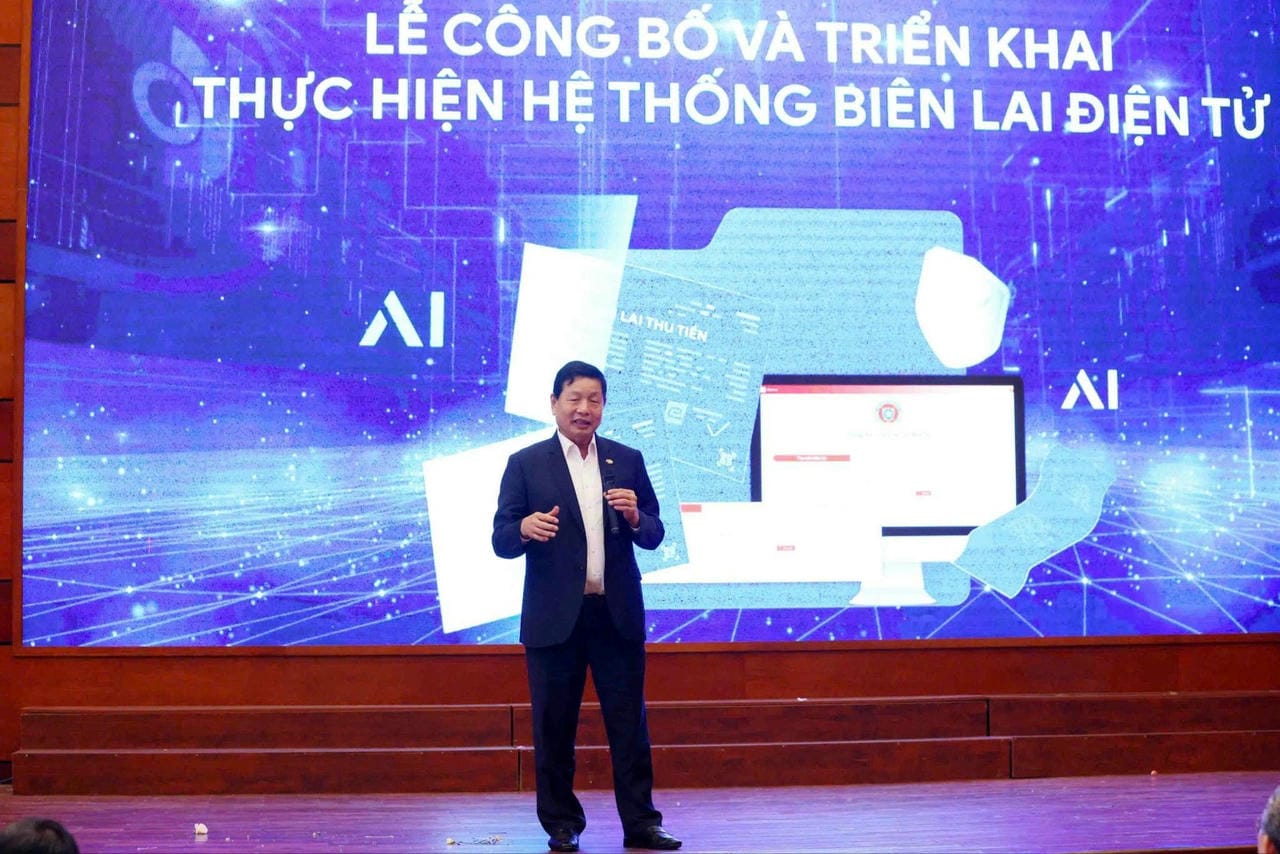Ministry of Justice pioneers digital and AI transformation in electronic civil enforcement receipts
Hanoi, July 4, 2025 – This morning, the Ministry of Justice officially launched the Electronic Receipt System, marking a significant step in the application of digital technology and artificial intelligence (AI) to civil judgment enforcement. This milestone demonstrates the Ministry’s proactive spirit in innovation and comprehensive digital transformation, aligning with the guidelines of Resolution No. 57-NQ/TW. Remarkably, within its first operational week starting from June 23, nearly 3,000 electronic receipts have been issued, accounting for almost VND 2 trillion in collections and payments.
The Ministry of Justice officially adopts electronic receipts for nationwide civil judgment enforcement.
The launch of the Electronic Receipt System took place within the framework of the ceremony announcing personnel and organizational decisions of the civil judgment enforcement system under the Ministry of Justice. The event saw the attendance of Minister of Justice Nguyen Hai Ninh, Deputy Ministers of Justice, leaders from the Civil Judgment Enforcement Department, representatives from the Supreme People’s Court, the Supreme People’s Procuracy, the Ministry of Science and Technology, heads of departments under the Ministry of Justice, leaders from divisions within the Civil Judgment Enforcement Department, as well as 34 provincial and centrally-run city heads of Civil Judgment Enforcement Department.
The Electronic Receipt System was launched within the framework of the Ceremony announcing personnel decisions for the Civil Judgment Enforcement system under the Ministry of Justice
The system is a crucial component of the Digital Civil Judgment Enforcement Platform—an integrated digital platform designed for leaders, Civil Judgment Enforcement Department officials, citizens, and businesses managed by the Civil Judgment Enforcement Department under the Ministry of Justice. Particularly, its deployment represents a concrete step towards implementing Resolution No. 18-NQ/TW, dated October 25, 2017, of the 12th Central Committee, which aims to streamline the organizational structure, enhance efficiency and effectiveness, and significantly reduce procedural time and errors. Emphasizing centralized management, the system not only improves operational efficiency and coherence but also lays the foundation for a modern, professional, and transparent justice administration that serves individuals and businesses efficiently and transparently.
Specifically, the electronic receipt system enhances transparency, speed, security, and data continuity in the financial management of civil judgment enforcement by utilizing advanced AI technologies. It enables digitalization and automation of the entire process—from decision-making to automatic data extraction with AI-OCR, digitally signed approvals, automated receipt issuance, and centralized archiving. Consequently, enforcement agencies can easily manage and retrieve electronic receipts, rather than manually handling cumbersome paperwork prone to high error rates, with the support of AI tools.
Citizens and businesses can conveniently access receipt information at any time and from anywhere via a single portal, ensuring convenience and timely service delivery. With administrative oversight, the system enables instant, real-time reporting, assisting in rapid decision-making and enhanced management effectiveness.
With the nationwide rollout of the Electronic Receipt System in July, all payment and collection transactions in civil judgment enforcement are now tightly monitored and reconciled through a centralized platform, ensuring legal compliance, preventing financial loss, and enhancing the sector’s credibility. Far beyond a simple management tool, the system represents a transformative foundation that modernizes operations, promotes transparency, and puts citizens at the center of service delivery. Its pilot launch on June 23, 2025, in Ho Chi Minh City—a jurisdiction with one of the country’s highest workloads—marked a significant milestone in the digital transformation of Vietnam’s civil judgment enforcement system.
In 2024, the national civil judgment enforcement system was tasked with executing over 1 million enforcement decisions, totaling more than VND 400 trillion in value and generating around 10 million paper receipts. These staggering figures underscore the scale and complexity of operations in the sector, highlighting that digital transformation is not just an option but an essential requirement for improving efficiency, transparency, and service delivery.
Mr. Nguyen Thang Loi, Director of the Civil Judgment Enforcement Department, emphasized the importance of officially launching the Electronic Receipt System in civil enforcement activities: “The implementation of the electronic receipt system is an important step toward better serving the public—enabling people to make payments and receive enforcement documents anytime, anywhere, replacing the previous use of cash and paper receipts.” The system, jointly developed by the Ministry Department and FPT, was designed to meet three core requirements: issuing electronic receipts via email and SMS, centralized storage for management and reporting, and enhanced transparency in collections and disbursements. Since its pilot launch on June 23, nearly 3,000 electronic receipts have been issued, and nearly VND 2 trillion has been collected via digital channels, demonstrating the effectiveness and a well-directed approach to digital transformation in civil enforcement.
Mr. Truong Gia Binh, Chairman of FPT Corporation, expressed his belief that digital technology and AI hold tremendous potential to empower the Ministry of Justice to become one of the most advanced and modern justice institutions in the world.
Mr. Truong Gia Binh, Chairman of FPT Corporation, stated: “Vietnam is at a pivotal moment with major opportunities to restructure and modernize public administration systems to global standards. The Ministry of Justice plays a key national role in this transformation. With the advent of new technologies, the justice sector can now operate with greater efficiency, transparency, and cost-effectiveness. Under the leadership of the Party and Government through the “four-pillar framework,” we are accomplishing remarkable work.” He highlighted the Ministry’s leadership in rapidly deploying the electronic receipt system nationwide in just 30 days, describing it as a breakthrough model of paperless, AI-powered administration. “This is a bold step forward,” he added, “where what used to take days or weeks can now be done in minutes, helping bring Vietnam closer to global digital governance standards.” He affirmed FPT’s continued commitment to supporting the Ministry of Justice in this transformation, concluding: “We firmly believe that digital technology and AI have the power to help the Ministry of Justice become one of the world’s leading modern justice institutions.”
As the Civil Judgment Enforcement Department continues to modernize and improve operational quality, the adoption of the electronic receipt system is seen as a key breakthrough. Moving forward, the Digital Civil Judgment Enforcement Platform will integrate a range of digital tools, including an electronic receipt system, AI-powered decision support, e-payment, and service integration, to comprehensively transform administrative processes, enhance operational efficiency, and improve public service quality.
As the technology partner behind the solution, FPT worked closely with the Civil Judgment Enforcement Department to swiftly design and implement the electronic receipt system within just 30 days. FPT experts supported the development, deployment, and training of the system at scale to ensure seamless nationwide operations by July 1, 2025. This partnership reflects FPT’s commitment to collaborating with the Ministry of Justice and other government agencies in implementing digital transformation solutions and achieving the goals outlined in Resolution No. 57-NQ/TW.


















